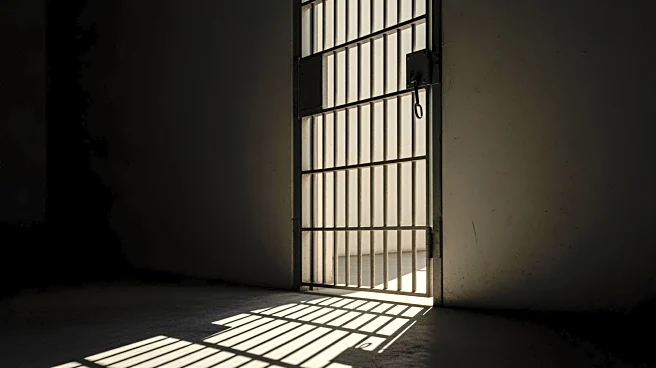What is the story about?
What's Happening?
The humanitarian situation in Gaza has reached a critical point, with over 2 million people trapped under siege and facing severe shortages of food, water, and medical supplies. The blockade imposed by Israel has led to widespread destruction, with more than 90% of homes and schools damaged or destroyed. The UN Security Council's Resolution 2720 calls for all parties to facilitate humanitarian assistance routes to Gaza, but Israeli restrictions have hindered aid delivery. The Rafah crossing between Gaza and Egypt is seen as a potential alternative route for aid, but access remains blocked. The international community is urged to establish a cross-border humanitarian mechanism to ensure aid reaches those in need.
Why It's Important?
The situation in Gaza represents a significant humanitarian crisis, with implications for international law and the conduct of war. The blockade and denial of aid have led to famine conditions, affecting the most vulnerable, including children. Establishing a humanitarian aid route is crucial to prevent further loss of life and uphold international humanitarian principles. The crisis highlights the need for decisive international action to protect civilians and challenge restrictions on aid delivery. Failure to act could result in continued suffering and instability in the region, impacting global perceptions of humanitarian efforts and international relations.
What's Next?
The international community, including the UN and regional partners, must consider all options to establish a humanitarian lifeline to Gaza. This includes diplomatic engagement with Egypt to facilitate aid through the Rafah crossing and potentially creating an international coalition to manage aid delivery. The situation requires urgent infrastructure upgrades at the border and transparent oversight to ensure effective distribution of supplies. The UN Security Council may need to revisit its resolutions and push for stronger measures to ensure compliance and humanitarian access.
Beyond the Headlines
The crisis in Gaza raises ethical questions about the use of humanitarian aid as a tool of occupation and the responsibilities of the international community in conflict zones. It challenges the effectiveness of international mechanisms in overcoming political barriers and highlights the need for innovative solutions in humanitarian aid delivery. The situation also underscores the importance of maintaining neutrality and independence in humanitarian efforts, as well as the potential long-term impact on regional stability and peace efforts.















